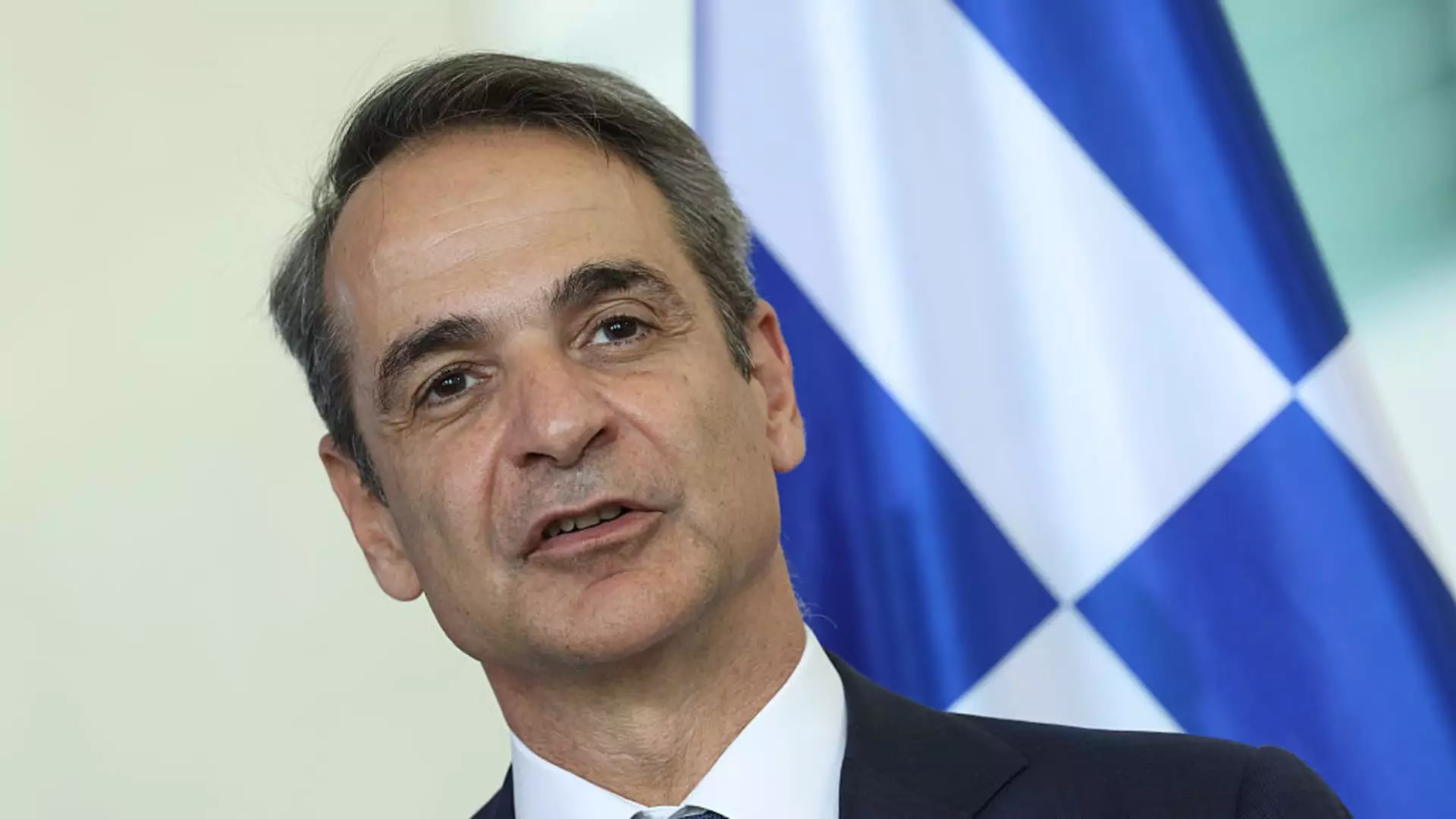In the tumultuous landscape of international relations, NATO’s defense spending has emerged as a contentious issue, particularly under the loud and persistent demands of former U.S. President Donald Trump. His call for member nations to ramp up their defense spending to an ambitious 5% of their GDP places an enormous burden on European allies, who are still grappling with the economic ramifications of a global pandemic and geopolitical tensions. Greek Prime Minister Kyriakos Mitsotakis, in a candid interview, expressed skepticism regarding the feasibility of such a target. While Trump may have stirred debate about military contributions, Mitsotakis’ insights urge us to reassess the implications of these demands.
Realism vs. Idealism in Defense Spending
The reality of military expenditure in NATO paints a stark picture. Mitsotakis indicated that while an increase to 3.5% might be conceivable, especially with accounting adjustments that consider wider security expenditures like infrastructure, reaching the lofty 5% threshold seems unrealistic. One has to wonder whether these demands reflect sound military strategy or a mere political stronghold. The crux of the matter lies in balancing national economic capabilities and military readiness—a juggling act that many NATO countries have historically failed to achieve. The disillusionment felt by leaders such as Mitsotakis calls into question the ideological underpinnings of Trump’s 5% ambition.
It’s important to recognize that defense spending isn’t just about pouring money into military operations; it encompasses the broader scope of national security, including cybersecurity and community resilience. Rutte’s suggestion to allocate 1.5% towards wider security measures highlights an emerging liberal perspective that resonates more with contemporary threats than outdated military posturing.
Forging a Sustainable Path Forward
The situation is exacerbated as only a handful of NATO members, namely the U.S., Poland, and Estonia, seem poised to meet or exceed the 3.5% bar. Germany’s recent pivot towards supporting Trump’s targets signals a desire to conform to U.S. expectations, regardless of domestic fiscal pressures. However, it raises the question: Is blind adherence to U.S. policy in NATO beneficial for European security? A compliant response may foster transatlantic unity, yet it risks ignoring the unique circumstances and priorities of each member nation.
As nations like Greece reinvigorate their military budgets in response to regional threats, such as ongoing tensions with Turkey, the priority should lean towards maintaining operational readiness without incurring crippling debt. The need for a progressive reassessment of defense spending criteria, one that accommodates the social and economic realities of member nations, is critical. A Europe that is compelled to make unrealistic financial commitments runs the risk of destabilization—not just militarily, but socially and economically too.
The Role of the European Union and Fiscal Flexibility
The EU’s role in facilitating defense spending must not be marginalized. Historical fiscal rules intended to stabilize economies have inadvertently constrained the ability of nations to bolster their defenses. Mitsotakis highlights the ongoing dialogue on easing these constraints, a step that could empower member states to invest more robustly in their security needs without the fear of draconian penalties. In an era where existential threats are evolving rapidly, the rigidity of these policies becomes considerably ill-suited.
The European Commission’s efforts to create a more flexible fiscal environment indicate a necessary shift, but the urgency of this change cannot be overstated. If Europe wishes to fortify its geopolitical standing, it must embrace reformative thinking about budgetary policy, allowing for a defense posture that reflects contemporary challenges rather than antiquated military doctrines.
As NATO grapples with the complexities of defense spending, it must navigate the intersection of individual national realities and collective security needs. While the allure of higher defense budgets is compelling, it is vital that this ambition aligns with sustainable growth and the overarching goal of European unity. Building a robust defense strategy necessitates more than mere financial figures; it requires a holistic understanding of the security landscape and the socio-economic fabric of Europe.

